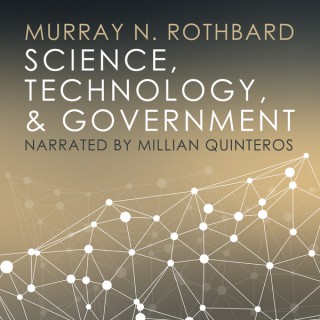Introduction to Economics: A Private Seminar with Murray N. Rothbard
Follow Introduction to Economics: A Private Seminar with Murray N. RothbardThis informal seminar with Murray N. Rothbard was recorded in Toronto, Ontario, on 4 September 1983. Special thanks to Don Morrison for making these recordings available. Download the complete audio of this event (ZIP) here.
- Jan 9, 2010 LATEST EPISODE
- infrequent NEW EPISODES
- 7 EPISODES
More podcasts from Murray N. Rothbard
Latest episodes from Introduction to Economics: A Private Seminar with Murray N. Rothbard

Starting with Crusoe economics, Rothbard builds the economic concepts which can be developed by this analogy.These concepts are the axiom of human action. Among them are: man acts, man acts by virtue of his existence, man acts with purposeful behavior, man prefers present to future actions, resources are means to achieve ends, scarcity exists, actions take time, life is uncertain, and the theory of value is subjective.Part one of seven from Introduction to Economics: A Private Seminar with Murray N. Rothbard.

Rothbard continues the Crusoe analogy. He covers subjectivity of value, and the concept of marginal utility.Part two of seven from Introduction to Economics: A Private Seminar with Murray N. Rothbard.

Rothbard considers how prices are determined by supply and demand on the free market. All long shortages are caused by government interventions. Forecasting is not possible. Economics is not an objective science.Part three of seven from Introduction to Economics: A Private Seminar with Murray N. Rothbard.

Costs are always ex ante. There are no such things as social costs or social benefits. Costs are determined by how much entrepreneurs think consumers will pay. Costs are not determined by supply and demand. Nobody waits for costs to raise prices. Rothbard does not believe in cost curves.Antitrust suits are often filed by one set of competitors trying to eliminate another set. Additionally, antitrust suits are money making rackets for lawyers.Interest is not just a loan; it is a time preference. Usury laws misunderstood interest.Part four of seven from Introduction to Economics: A Private Seminar with Murray N. Rothbard.

The entrepreneur is the major risk bearer. Business return on capital is long run profits or losses. Real rate of interest is determined by time preferences. Government contracts are cost plus. Medical costs are higher because supply is so restricted by government intervention. Who benefits?[by government action]. Rockefeller families are heavily invested in drug companies. Cartelism. Monopolies. Yet, free market productivity causes prices of goods to drop, e.g. computer products.How the history of the business cycle starts. War stimulus, famine, were outside the market and not cyclical until around 1750. There then began to be wave-type activities. The Industrial Revolution and fractional reserve banking spread. Were these the causes of cycles? Were sunspots? Part five of seven from Introduction to Economics: A Private Seminar with Murray N. Rothbard.

What causes business cycles? Keynesians say the cycles happen because the free market economy does not spend enough. Thus, pump spending in. Additionally, Keynesians say that animal spirits cause these cycles. Government must fix things. Nobody could understand Keynes' General Theory. What was simply obscure was wrongly considered deep.Keynes linked national income with employment, by assuming wage rates are fixed downward. Although Keynes wrote of balanced budgets, there were only deficits.Part six of seven from Introduction to Economics: A Private Seminar with Murray N. Rothbard.

Deficits are equal to expenditures minus taxes. Reagan spoke of cutting government spending, but meant only cutting the rate of growth of government spending. Stagflation appeared in 1957-58. Inflation during a recession was not supposed to happen. It happened again in 1973-75. Part seven of seven from Introduction to Economics: A Private Seminar with Murray N. Rothbard.
















